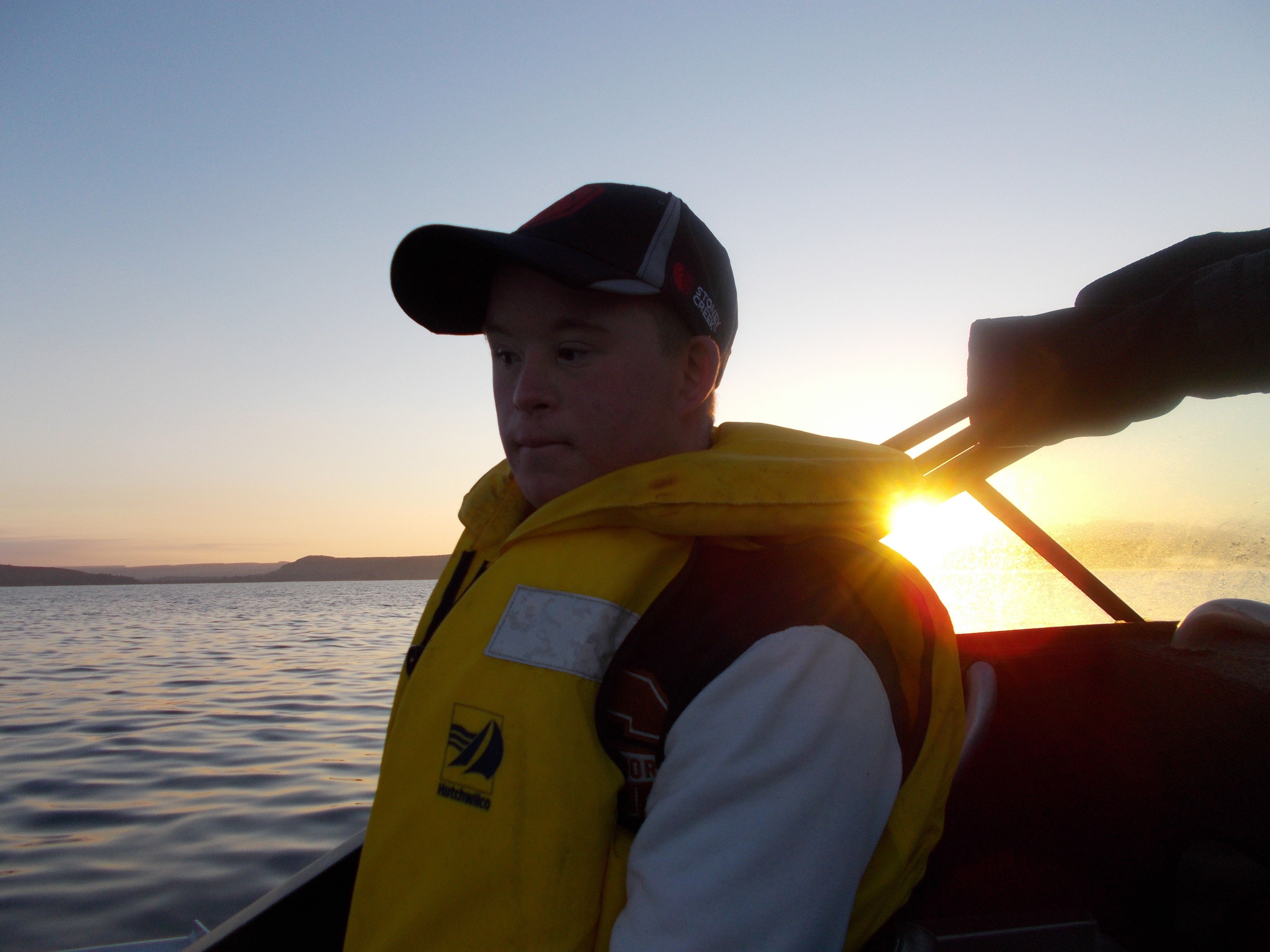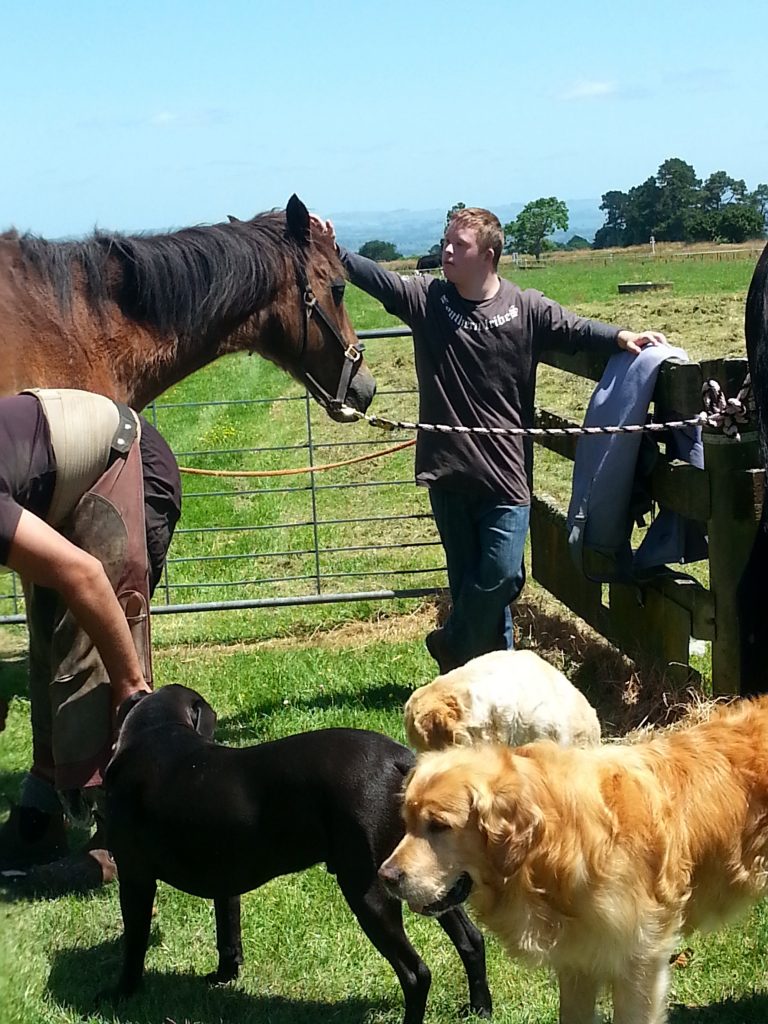
My Grandson the gift
Gifts from God come in all kinds of wrappings and I treasure the gift of my Grandson. I am a Grandparent with fulltime care of my fifteen year old grandson James who has multiple disabilities, including Downs, Autism, Epilepsy, Hashimotos and sensory disabilities. He has had a recent diagnosis of Juvenile Arthritis. All issues apart from Downs have been diagnosed since he has been in my care.
I love my boy, for many reasons. He has made me a much better person. He has taught me to be kinder and more understanding and above all I have learned patience. He has shown me a new world full of unconditional love and unending joy.
I wish you could see my laughing boy. But it hasn’t always been that way.
How he came into my care
This child was a victim of relentless parental neglect until he was removed to my care in 2007. There was no ‘early intervention’, minimal medical contact and very occasional schooling.
My wee man has a severe intellectual disability; I have had to accept that he has an IQ of 40 and an intellectual age of 6 years. He will never hold a salaried position; nor will he ever drive a car. BUT; he will never have a tax problem nor will he have a mortgage so, who has the disability?
He has progressed from an 8 year old nonverbal lump who weighed 15kgs, who sat and rocked on the floor – into an active exuberant boy who loves to run and play. This boy has undergone a number of medical procedures and we have had some great results but it hasn’t finished. From thinking that it was normal to wear nappies, it has taken a huge effort but he is now toilet trained! He is very proud of his major achievement.
His speech is progressing and he can (for the most part) make himself understood but I realize that he will never be fully articulate and will always need help.
At mealtimes, he always sits at the table and uses cutlery when eating. He has developed his own taste in food but ice-cream is always there! He has his chores that he zealously guards. He has learned some manners, please – thank you, and asking politely but we are still working on it.
James helping the Farrier
My boy was absolutely terrified of water but after many hours at our local pool slowly, slowly I got him into the water, now swimming is his most favourite pastime. So much so Grandma had to visit Gumtree for a pool. He has become a very sociable boy who loves having his friends visit, especially for a pool party and Grandma’s BBQ.
He attends a special education school every day and loves it. He has developed a special relationship with his teaching staff. He just loves them and his school. Their dedication and love cannot be underestimated. School staffs have been the major strength in his improvement.
Now my little man has grown, he is at High School. What a joy to see him grow, healthy and happy. So many people said it was doubtful but we did it. We survived together!
I don’t feel that I have done anything special for my wee man but love him and I tell him that every hour of every day. He thrives on hugs and kisses and so do I, we love each other and I think that is the key.
Without wanting to sound melodramatic, He is the reason I get up in the morning and I thank God for entrusting him to my care.
Shirley is one of our members. She wanted to share her story to highlight how children with a disability can thrive when provided with support and love.
In September 2016 Shirley was diagnosed with stage 4 Cancer. She is currently receiving Chemotherapy treatment. During this time the Active Foundation have been an incredible support providing respite care for James picking him up from school and dropping him home later in the week. Allowing Shirley to time to recover from her Chemo treatment.
Pictured: James on Lake Taupo






